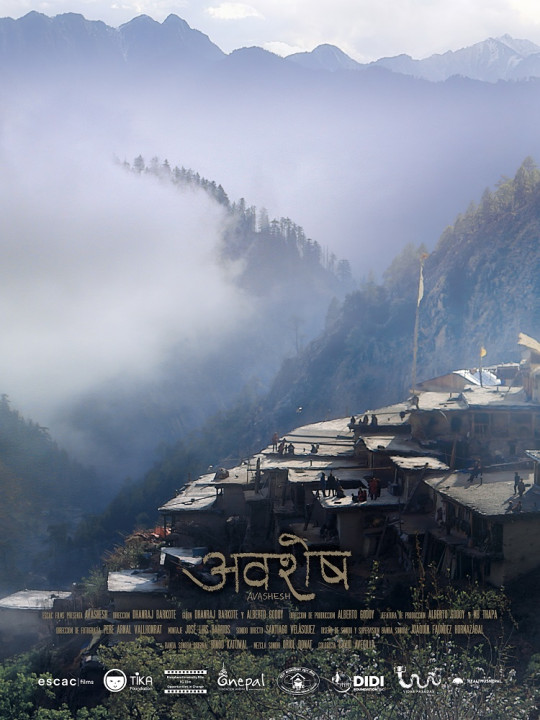Movies
History, memory and identity
‘Avashesh’, screened at KIMFF, is a hauntingly intimate portrayal of grief and the relentless pursuit of the self.
Anusha Dhakal
A Sylvia Plath quote comes to mind, recalling the premise of ‘Avashesh’. “I need a father. I need a mother. I need some older, wiser being to cry to. I talk to God, but the sky is empty.” In this deeply personal film, Dhanraj Barkote shares the poignant story of his life as an orphan, his quest for identity, and the persistent void within him, born out of the profound loss of both parents that renders him adrift.
Raised in an orphanage in Kathmandu, Barkote later moved to Spain to study film. His memories of the past frequently resurface, each one deepening the void left by his parent's death. This compels him to journey to his remote mountain village in Humla—a place he had never visited as a child—to seek his roots and gain a deeper understanding of who his parents were.
Villagers welcome him with music, a peculiar gesture to him. It baffles him how these people, whom he does not recognise, remember him. He meets the village elders and inquires about his parents, yearning to grasp the fragments of their final memories.
A particularly tender moment in the film is when he discovers his mother’s potey (a traditional necklace) in a relative’s house. It's deeply moving to see him listen to stories about his mother, whom he never met due to her untimely death. This journey not only reveals who his parents were but also deepens his understanding of himself.
Grief is a void that pulls you in and consumes you completely. Barkote fearlessly exposes all aspects of grief, tenderly illustrating that one doesn't simply “move on” from losses just because they happened long ago. The film beautifully captures both the painful and tender moments of grief, offering a genuine and heartfelt portrayal of enduring sorrow.
A particular moment in the film will forever be etched in my heart and mind. Barkote kneels by the river, his head shaved, per the Hindu death rite. In this long, intensely emotional scene, he finally finds closure—20 years after losing his parents.
As I watched, a question echoed in my mind: Is grief like drowning? Yet, I realised grief is worse than drowning. Drowning is swift, but grief is slow and persistent, a constant presence. In many ways, grief is like a shadow, always lingering until you find the strength to face it.
Discovering his history and recalling his memories solidifies his self-identity; he feels more complete in his homeland, among his people. He now understands that people are shaped by their circumstances, and despite the misfortunes he faced, they have moulded him into the person he is today.
We grow, but it hurts at first. Through his story, Barkote shows that confronting what hurts you is the path to self-understanding. It is within the courage of this confrontation that one finds the strength to heal.

Director: Dhanraj Barkote
Cast: Dhanraj Barkote
Duration: 30 minutes
Language: Nepali




 22.65°C Kathmandu
22.65°C Kathmandu












